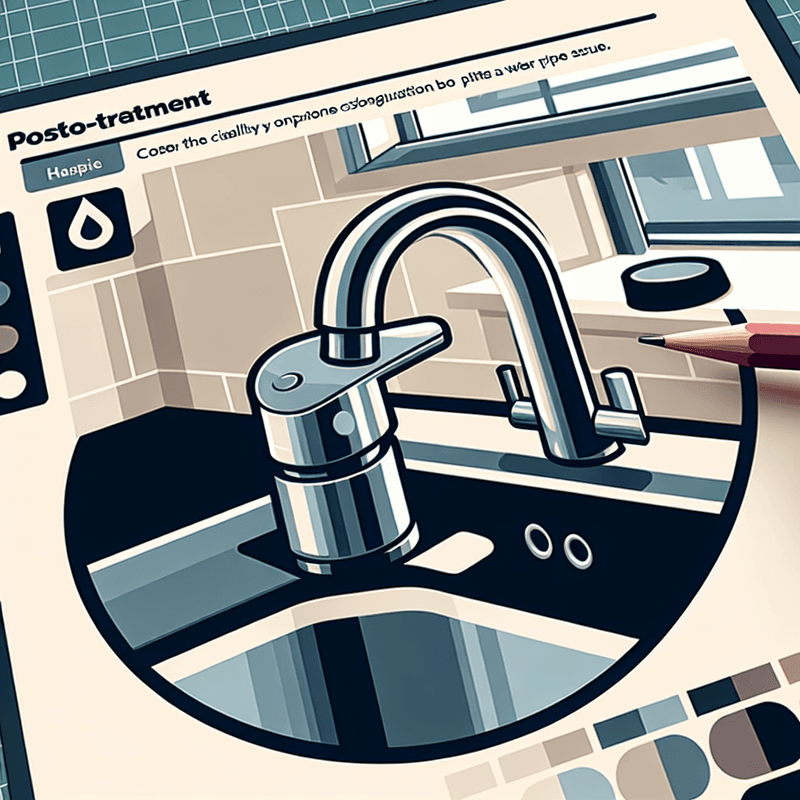If your establishment relies heavily on a functional kitchen or wash area, experiencing slow-draining sinks can be more than a minor inconvenience. It disrupts operations, poses health hazards, and if not resolved, can lead to significant plumbing disasters. This guide delves into the common causes of this issue, methods to diagnose, quick fixes, and when to realise that it's time to call in the professionals.
Understanding the Problem: Why Commercial Sink Drains Slow
Commercial sink blockages commonly stem from the buildup of grease, food particles, and other debris. Unlike residential sinks, the volume of waste in commercial settings is generally higher and more diverse, increasing the propensity for blockages. Additionally, the longer pipe runs in commercial plumbing can exacerbate the issue, allowing more spots for clogs to develop.
Spotting Early Signs of a Slow-Draining Sink
Early detection is key to avoiding a full-blown blockage. Watch out for water pooling around the drain or a gurgling sound as the sink drains—these are telltale signs that a blockage is forming. A foul odour emanating from the drain can also indicate that food particles have started to decompose within the pipes.
Immediate Actions: DIY Fixes
Before calling in a professional, there are several methods you can try to clear minor blockages:
1. Boiling Water: Sometimes, pouring boiling water directly into the drain can dissolve organic compounds and clear the blockage.
2. Plunger: A standard tool in any commercial kitchen, using a plunger can help dislodge blockages that aren't too far down the pipeline.
3. Drain Cleaner: Use a commercial-grade drain cleaner to help break down fats, oils, and grease. However, use these chemicals sparingly as they can corrode pipes over time.
4. Drain Snake: For more stubborn blockages, a drain snake or a plumber's auger can be effective. This tool allows you to reach deeper into the plumbing to remove clogs manually.
Long-Term Maintenance: Keeping Your Drains Clear
Preventative measures are crucial in a commercial setting. Regular maintenance not only keeps the drains flowing freely but also extends the life of your plumbing system.
- Regular Cleaning: Establish a routine cleaning schedule for your sinks. This includes the physical cleaning of the sink and the use of enzymatic drain cleaners which break down organic matter without harming your pipes.
- Grease Traps: Ensure that your kitchen has a grease trap and that it is cleaned and maintained regularly. Grease traps prevent fats, oils, and grease from entering your plumbing system.
- Staff Training: Educate your staff on the best practices for waste disposal and the importance of keeping the sinks and drains clear of debris.
When to Call a Professional
If you've tried the aforementioned DIY fixes and the problem persists, it might be time to call in a professional plumber. Here are a few indicators that professional help is needed:
- Multiple Blocked Drains: If more than one drain is affected, this could signify a more serious, systemic issue within your plumbing system.
- Recurring Blockages: A blockage that frequently returns could indicate a deeper or more severe blockage that typical household tools cannot reach.
- Water Backup: If water starts to backup not just in the sink but also in other fixtures, this is a clear sign of a major blockage.
- Persistent Foul Odour: Persistent bad smells can indicate a buildup deep within the drain that needs professional attention.
Conclusion
Dealing with slow-draining sinks in a commercial environment requires a proactive approach to both maintenance and problem-solving. Understanding the common causes and knowing a few handy fixes can save time and money. However, recognising when to call in the professionals can be just as crucial, ensuring that your operations run smoothly without prolonged disruptions.
For any business, ensuring that the plumbing system is functioning optimally is not just about convenience but also about maintaining health standards and operational efficiency. By following the tips outlined, you'll better manage and maintain your commercial sink drains, keeping your business flowing as smoothly as the water in your pipes.





